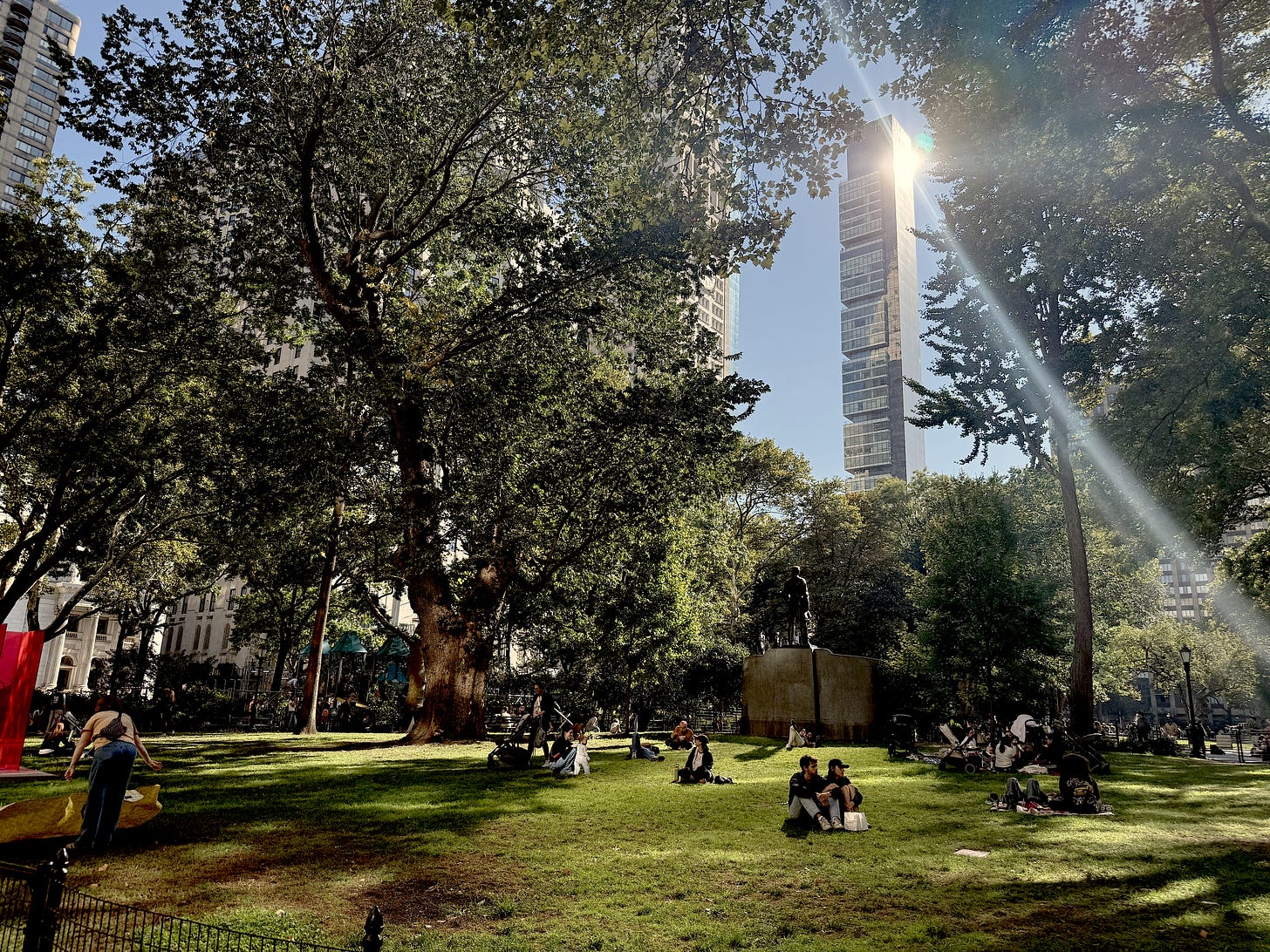before unlimited
and what we lost
There was a time when the use of the word “unlimited” felt revolutionary. We once lived in the world of limits: phone minutes, text messages, data, channels, movies, music. The world was smaller — when you only had 1000 minutes, or 1000 messages, or 10 channels, you had to learn to make do and avoid hitting your limits. In those days, unlimited was an impossibility, so we found ourselves excited by big numbers instead. The first iPod had the tagline “1000 songs in your pocket,” which seems quaint compared to what Spotify describes itself as today, a service that “gives you access to millions of songs.”
If you’d asked anyone at the time if they could have unlimited talk, text, data, movies, TV shows, and music, they’d say yes before you could finish the question. Limits kept us constrained, so making everything unlimited had to be good, right? Who wouldn’t want to have access to abundance and excess? What bad could come of completely opening the floodgates to unlimited access to all of the things that we desired?
And when unlimited started to become common, first with talk and text, and then with everything, it became less of a differentiator than a standard. A new platform or service never leads with “unlimited” as a selling point anymore, since everything is endless in the same way. Social networks once showed a limited set of information — only what your friends did. But now? They’re endless social media feeds, an unlimited set of content.
The costs of the unlimited lifestyle are invisible, but disquieting once you look at them. Musicians are underpaid and forgotten, the movie industry features more mergers and consolidation, as we lose our sense of value for art. An album that took hundreds and hundreds of hours to make is just one of a million songs you have access to. A film that had over a hundred people on cast and crew for a year is worth a tiny portion of a $7.99 monthly fee. In the sea of abundance, the importance of a water drop is forgotten.
Often, the tech billionaires who provide this exploitative abundance also wax poetic about defeating death, finding a means of attaining immortality. Unlimited media isn’t enough, they say — we need unlimited life. And, just like with all of their actions, the idea is incomprehensible to me.
Look at life with me for a second. We toil, God knows we toil, but we also sing and dance, and witness change of ourselves and our surroundings and everyone we love and hate. We make choices every day about how to spend our time, who to spend it with, and every choice is loaded with meaning. We have choices every day but we only have so many days. Every choice matters because there will always be a day where we run out of choices. So every choice to spend a day with someone is an act of love and an act of sacrifice of the limited choices we have left.
Then, what happens when the days never end? Doesn’t everything lose some meaning, knowing that it lacks sacrifice? Won’t we lose our sense of time, or any sense of urgency, knowing that we could do anything at any time? I see an immortal version of myself. I see him taking everything for granted; I see him procrastinating everything. I see him and want nothing to do with him.
Unlimited life is not here yet, but unlimited consumption is, and I question whether I want to continue to be a part of it as I have been. Unlimited life would rob us of realizing the importance of each day, but unlimited consumption already makes us forget the importance of everything we consume.
I look fondly back at older times that were filled with limits. Limited connectivity, limited visibility; it offered a sort of freedom. Every new release of a movie or game felt special, rather than something adding to the endless sea of content. I still remember my excitement building up for weeks leading up to the releases of Halo 3 and then Halo: Reach a few years later. These games would fill hundreds and hundreds of hours of my life, because I loved them, and because there was nothing else as interesting competing for my attention.
With the limitations of the time, it made more sense to relish what you had. It made sense to rewatch the movies you had on DVD, to re-read the books you had, to gleefully sink hours into the same video games day after day.
I’m making small changes to try and reconnect to this type of joy. I try to spend less time on unlimited feeds. I buy books from the used bookshop and borrow from the library instead of just downloading e-books. I watch movies in the theater and think about buying Blu-rays. I redownload my old iPod library onto my phone and use Spotify less and less. I buy a few albums from Bandcamp, and I feel more connected to them as I play them on loop for days at a time.
It’s not the same, but it feels better in some ways. As I wonder how much I can reclaim, “R.I.P.C.D.” by the Flatbush Zombies comes on, and I zone out to the chorus:
“RIP to the CD, can’t even play my hits
’Cause new computers ship without the means to play the shit
We love the boosted speed, we love the memory.
It got me feelin’ like we’re nothin’ like we used to be”
💧 Drops of the Week 💧
ALBUM - 3001: A Laced Odyssey by Flatbush Zombies - I still love this album
POEM - “I Woke Up—Smiling” by Ha Jin - If a poem arises, it’s merely / an accidental blessing.


